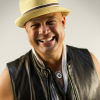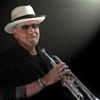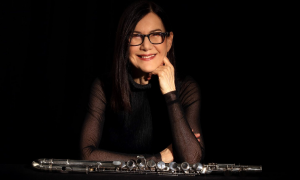Home » Jazz Articles » Interview » Peter Welker: Touching All of Jazz's Bases
Peter Welker: Touching All of Jazz's Bases

All About Jazz: Good afternoon, Peter. On behalf of All About Jazz, we'd like to thank you for taking time to chat with us.
Peter Welker: It's my privilege and pleasure, Nick. Thank you.
AAJ: Thank you for sending me the two terrific albums—Duke, Billy and Tadd and Paradise Is Awfully Nice. You were kind enough to do that. In reading the liner notes, there's a tremendous amount of background there, especially regarding how you got into the music game. Can you tell us a little bit about that?
PW: Absolutely. Thank you for asking. My Mom was born blind and was a wonderful jazz pianist and vocalist. She and my Dad were both band leaders. My Dad was a band leader in New York City and Boston. They both played piano. My Uncle Pete was a drummer with Tommy Dorsey's orchestra for awhile. So I grew up in it. They tried to talk me out of being a musician and do something real. But, I would hear them rehearsing in the apartment and I went, "Man, that sounds really cool. I want to do that someday." I guess that would be my background. I ended up going to the Berklee School of Music in Boston back in 1959.
AAJ: Please tell me about your Mom, Lawrence Berk, and the Berklee School of Music connection.
PW: My Mom was singing on a really big coast to coast radio show out of Manhattan called "The Camel Caravan," sponsored by Camel cigarettes. She was singing on that show from 1935 to 1938. The pianist and arranger with that orchestra was Larry Berk. She and Larry go all the way back to 1935. Larry was the founder of the Berklee School—now College of Music. We've known the Berk family for a long time.
AAJ: And you were in Boston. How did you wind up getting into Berklee?
PW: My Mom went there and actually developed a Braille jazz course that was endorsed by

George Shearing
piano1919 - 2011
AAJ: When did you start playing trumpet?
PW: I was nine. Originally my parents wanted me to play piano. They started showing me stuff at age five or six, but I just felt intimidated by both as they were both fine players. I said that I didn't want to play piano so my Mom and Dad, said: "Well, you've got to play something." My Mom had a quintet with a really cool looking trumpet player, Julius Siri, a very handsome Italian guy. He stood out in front of the band and looked really cool in his suit. I thought: "You know, I think I want to play trumpet." So my Dad bought me a "Pan American" trumpet.
PW: I even bent it, because I loved Dizzy. I took the trumpet and I bent it over the corner of a chair. It was crimped and looked terrible, but I thought I was being cool, man. I even bought the black horn rimmed glasses that Diz and Bird wore. Anyhow, I thought that I was looking cool at age 13.
AAJ: Great. What years were you at Berklee with your Mom -and was your Dad teaching at Berklee too?
PW: My dad was killed by a drunk driver in an auto accident. I was 12 and was with him at that time. And so he was not in the picture when I went to Berklee in 1959, '60 and '61. I had some really interesting classmates that were going to the school then. I think there were only about 350 students attending Berklee then. There were some pretty heavy duty ones that went on to become household names.
AAJ: For example?
PW: Well, let's see. When I was going there my classmates were

Gary Burton
vibraphoneb.1943

Keith Jarrett
pianob.1945
Fred Lipsius
saxophone
Henry Mancini
composer / conductor1924 - 1994

Mike Nock
pianob.1940

Dusko Goykovich
trumpetb.1931

Steve Marcus
saxophone, tenor1939 - 2005

Gabor Szabo
guitar1936 - 1982

Sadao Watanabe
saxophone, altob.1933

Hal Galper
piano1938 - 2025

Sam Rivers
saxophone, tenor1923 - 2011

Toshiko Akiyoshi
pianob.1929

Charlie Mariano
saxophone, alto1923 - 2009

Bill Chase
trumpet1934 - 1974

Tony Williams
drums1945 - 1997

Alan Dawson
drums1929 - 1996

Chick Corea
piano1941 - 2021
AAJ: That's where you learned your arranging techniques?
PW: Absolutely. I took basic courses at first and then more advanced courses with

Herb Pomeroy
trumpet1930 - 2007

Duke Ellington
piano1899 - 1974

Billy Strayhorn
piano1915 - 1967
AAJ: What happened after Berklee?
PW: After I went three years there, my classmates said: "So are you going to New York or Europe? That's really what you need to do." I said: "I'm a little intimidated by both. I think I'm going to jump on a Greyhound bus and go to San Francisco." And they said: "San Francisco? There's nothing going on there." And I said: "Well, I want to go there."So I came out in 1962 on a Greyhound bus and ended up in the Haight-Ashbury district. I lived there for a few years. Right away I put together the house band at the famed Jazz Workshop in North Beach and did all the writing.

George Duke
piano1946 - 2013

Cannonball Adderley
saxophone1928 - 1975
AAJ: What did you do after that?
PW: Well I discovered Rock and Roll around 1967-ish. I was in a jazz clique in the Bay Area that told me : "If we ever find a Rock and Roll record in your collection, you're out of the clique." The jazz guys would come by and hang out. Around 1967 I discovered

Ray Charles
piano and vocals1930 - 2004

The Beatles
band / ensemble / orchestra
B.B. King
guitar, electric1925 - 2015

Tom Harrell
trumpetb.1946

Steve Turre
tromboneb.1948
AAJ: What was the name of the album?
PW: It was called "Rush."
AAJ: And what was the name of the group? Did your group have a name?
PW: The band was also named "Rush." I was the horn section leader, but it was Marvin Holmes' band. A very good guitarist. He came into a club that I was playing in Oakland with a great horn band . We were splitting the evening with "

Tower of Power
band / ensemble / orchestrab.1968
AAJ: You've played with quite a number of varied acts. Can you can you tell me some of them? I know you said you did some work with "Cold Blood" and "The Jerry Garcia/Merl Saunders Band." Who else did you work with?
PW: After that band broke up, I was able to join a really great Latin orchestra, Caesar's Latin Band that played 4 nights a week in North Beach. I was with them for about two years. There were some great players in that band—Victor Pantoja, Pete and Coke Escovedo, Benny Velarde and Francisco Aguabella. The horn section was

Tom Harrell
trumpetb.1946

Van Morrison
vocalsb.1945

Bill Watrous
trombone1939 - 2018

Steve Smith
drumsb.1954

Bruce Forman
guitarb.1956

Pete Escovedo
percussionb.1935
AAJ: Let's talk a little bit about the Duke, Billy and Tadd and Paradise Is Awfully Nice albums. When were those albums originally recorded?
PWParadise Is Awfully Nice was recorded in 2002 and Duke, Billy and Tadd in 2006. They both got picked up by a great record label and received extensive airplay and rave reviews world-wide. Tower Records back then had a label called 33rd Street Records and they distributed these and promoted them world-wide. In fact, All About Jazz.com gave both of them nice reviews. You're working for some great people there, Nick!
AAJ: The personnel on both of those albums are pretty well-established. Can you tell us a little bit about who, what, where and why? People like Herb Pomeroy,

Ernie Watts
saxophone, tenorb.1945
PW: Well, the first one recorded was "Paradise Is Awfully Nice" and it was dedicated to my Mom who died. I was sitting with her in the hospital. She had been in a coma for a week and hadn't said a word. And right before she died, she whispered and said: "Peter," and I leaned in and she got a big smile on her face and she said: "Paradise is awfully nice." And then she passed. That was really touching. So I realized, I've got to do something to memorialize my Mom who I loved dearly. So on my way home, I heard a melody which I wrote out as soon as I got home and harmonized it with a brass choir. That is the short piece that opens the Paradise Is Awfully Nice CD.
Then for the next album—Duke, Billy and Tadd—I asked if Herb would come out and record with me again. I said: "Well, what would you like to be featured on?" And he named three Billy Strayhorn tunes, which freaked me out, because Strayhorn's music is very challenging to play and particularly to arrange attempting to keep the character of Billy Strayhorn's spirit in the tunes. It wasn't like an 18-piece band; it was just five horns with a 10 piece band. So Herb said: "I'd really like to record 'Chelsea Bridge,' 'Ishafan' and 'A Flower is a Lovesome Thing.'" So I started arranging those. It took quite a while. I think each tune was 60 or 70 hours to arrange. I would call Herb for input on various voicings and chord changes. That was because I knew he was an expert, especially on the Strayhorn/Ellington stuff. I pulled that all together and got him out again. I think we recorded maybe four or five songs while he was out here. That was a wonderful and very challenging experience for me.
AAJ: Well, they're both absolutely terrific albums. I enjoyed hearing both of them. Of all of the various artists that you've had the opportunity to perform with, which musically was the most rewarding?
PW: That'd be a tough one, Nick. I mean, I really learned a lot and enjoyed playing with all the different people that I played with. The fact that I got a bunch of my heroes on the projects that I produced and wrote for, meant a lot to me. Herb Pomeroy would stand out, of course. I have this new killer six-piece band that just recorded 12 songs that are all mostly originals . It's a jazz fusion, Latin / funk, band and it's amazing! We have six Grammy? winners on this CD. Drummer Todd Tribble and I are co-producing it. We're mixing it now.

Tom Scott
saxophone, tenorb.1948

Tony Levin
bassb.1946

Pete Levin
keyboardsb.1942

Miles Davis
trumpet1926 - 1991
AAJ: Do you have an anticipated release date?
PW: You know, we're going back in the studio to mix the last half of the album in two weeks then we're going to shop it.
AAJ: Your arranging and compositional philosophy style -how do you approach it?
PW: You know, I think it depends on what the situation is i.e., if I'm arranging for a singer, or a funk band or a big band etc. Writing for this new band has really been fun, because I'm pulling every genre of music that I have played and love—Latin, jazz and funk. This new band has got all of that going on. We have lots of musicians coming to our gigs checking us out and they say that we sound like a combination of

Yellowjackets
band / ensemble / orchestrab.1977
Another wonderful period in my career was in 1994 and 1995. I was the horn section leader and arranger for legendary producer and drummer,

Narada Michael Walden
drumsb.1952

Joe Zawinul
keyboards1932 - 2007

Patti Austin
vocalsb.1948

Alphonso Johnson
bassb.1951

Alex Acuña
percussionb.1944
AAJ: Peter, on behalf of All About Jazz, thank you so very much for taking time. This has been absolutely highly great, fun, informative.
PW: I'm really honored and what a privilege to be able to talk with you and thank you for all you and AAJ do for jazz and jazz musicians.
Tags
Comments
PREVIOUS / NEXT
Support All About Jazz
 All About Jazz has been a pillar of jazz since 1995, championing it as an art form and, more importantly, supporting the musicians who make it. Our enduring commitment has made "AAJ" one of the most culturally important websites of its kind, read by hundreds of thousands of fans, musicians and industry figures every month.
All About Jazz has been a pillar of jazz since 1995, championing it as an art form and, more importantly, supporting the musicians who make it. Our enduring commitment has made "AAJ" one of the most culturally important websites of its kind, read by hundreds of thousands of fans, musicians and industry figures every month.






 Buy Now
Buy Now























